PBL, PBE, SEL… you get it.
Not all learning methodologies are created equal. Or are they? The education landscape is riddled with the latest jargon, and it seems everyone is jumping behind one acronym or the other, marketing their schools as project-based, place-based, teacher-powered, competency based, montessori, personalized, social-emotionally centered, etc. The list goes on and on… you get it.
All educators have seen these buzzwords, and have perhaps invested in one of these methodologies as a way to increase student interest, achievement or empowerment at their schools. But are these learning methods divisive? Must these approaches be mutually exclusive, or can and should the visible trend follow — good, quality learning in general?
Education desperately needs what it already has… an overwhelming demand for the tools to make good, quality learning accessible for all. What we know about how to further develop and quantify types of intelligence is emerging, and edtech makes it easier than ever before to manage this wave of ed transformation. No matter the method, there is no doubt that educators today are conscious of and passionate about self-empowering learners to be thoughtful and skilled citizens. Here are a few of the methods that have made educational headlines in 2018, what distinguishes them and why we should care.
Project-based learning (PBL)

Northwest Passage High School combines advisory, inquiry driven project based learning, interdisciplinary seminars and expeditions.
The Buck Institute for Education defines PBL as “students working on a project over an extended period of time that engages them in solving a real-world problem or answering a complex question.” As PBL has become increasingly popular over the past few years, so has the rise of required state mandates that students must meet for matriculation. Ed influencers who have made the switch from traditional teaching to the more unconventional project advising role often evangelize the PBL method, but not without warning. It is clear students benefit tremendously from PBL, as practitioners report it further fosters self-empowered learning and the acquisition of important 21st century skills. But PBL implementers also understand the more demanding aspects of this method, like logistical management, curriculum overhauling and navigating how to track student achievement. Some ed landscapes have mastered this method while providing quality guidance at scale, while others have masked traditional, teacher assigned project work as marketed, authentic student-led learning. More often than not good intentions result in the failure to give students the time, trust and freedom to follow their own intellectual pursuits, perhaps as a result of obligatory compliance standards mandated by the state. Despite the challenges, it is humbling to see the results of high quality PBL schools who have maintained compliance while fostering true student-led learning day in and day out.
Place-based education (PBE)
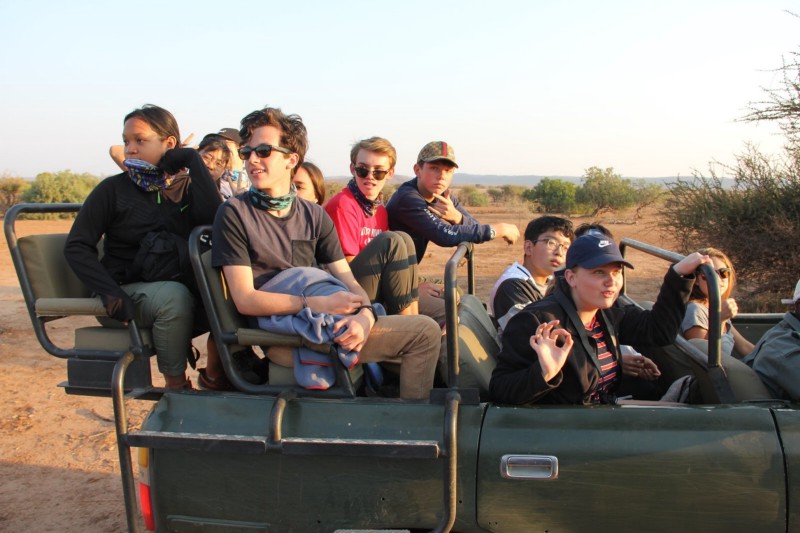
THINK Global School is a traveling high school that combines high academic standards with interdisciplinary, place-based and project-based learning.
An often loved methodology for its practical nature in a globalized world, PBE “promotes learning that is rooted in what is local — the unique history, environment, culture, economy, literature, and art of a particular place.” While attractive in philosophy, as PBE emphasizes learning through participation in community service projects, schools again struggle with the management of such open-ended curriculum. Similarly to PBL, students potentially work to solve a problem through tacking a project that responds to the felt need of the respective community. For private study abroad programs or travel-based service providers, tracking student development may be remiss as the demand for such is unwarranted. Yet for public institutions who hope to promote local learning, fighting district standards, navigating logistical management and tracking student development becomes an immediate challenge as most schools remain tied to traditional mandates. Regardless, hundreds of schools have found a way to dedicate themselves to this philosophy and serve to extend their local learning opportunities to global understandings, fostering great future-forward skills as well.
Social Emotional Learning (SEL)
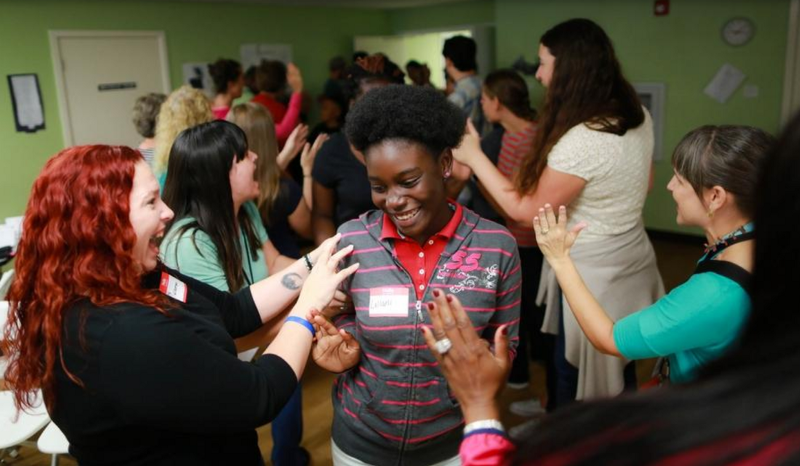
Resilience Charter School engages students through authentic relationship building and combines social-emotional learning with project-based learning.
Often facilitated in tandem with other methodologies, SEL is another coined educational method that has gained recent momentum. According to CASEL, SEL is “the process through which children and adults acquire and effectively apply the knowledge, attitudes, and skills necessary to understand and manage emotions, set and achieve positive goals, feel and show empathy for others, establish and maintain positive relationships, and make responsible decisions.” Sounds ideal, right? The approaches to teaching SEL are typically achieved through explicit SEL instruction, teacher modeling, integration with curricular areas and cultural strategies. Mindfulness education is often reinforced as a subset of SEL which fosters self-awareness among students, and has seen increased interest in recent times. The question most have regarding this methodology is of tracking achievement. How does one “grade” these social skills and track student development with accurate representation? Once again, achievement tracking proves difficult to quantify when representing SEL outcomes. While difficult, it is not impossible, and many schools prioritize SEL as the foundation of their educational missions.
Personalized learning (PL)
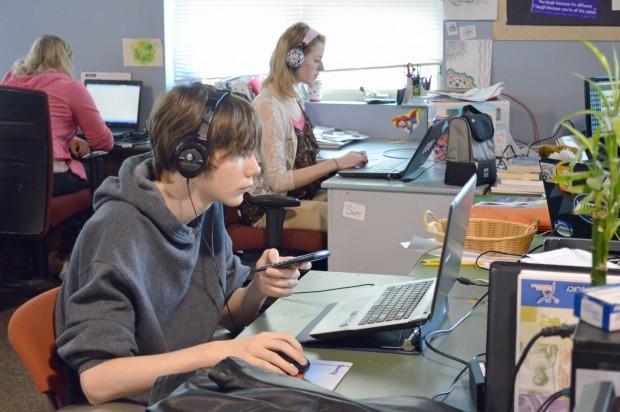
Minnesota New Country School guides students toward self-actualization through personalized learning plans, student-led project-based learning and experiential education.
PL seems to be all the rage these days. I mean, who doesn’t want students and teachers to “collaborate to determine learning needs, plan, and design, while emphasizing the role of student voice and purposeful technology.” Sound familiar? Similarly to previous mentioned methods, PL intends to empower individual students. What most distinguishes this method is the provided support for remediation for low achievers and enrichment for advanced achievers. Basically, personalization meets a student exactly where they are at, unlike the prescribed curricula and rote teaching known of traditional schooling. Of course, the challenge here is accommodating every student and their individual needs at scale. While blended instruction and digital systems ease this management dilemma, it is no easy task for schools to foster genuine personalized instruction for all. While PL mirrors the self-driven initiative required in industry practice, some question whether student learning is met with the same level of rigor or curriculum breadth as more traditional systems demand. It is obvious this is the movement forward in education, as PL drives student initiative and adaptability required in the future world of work.
Competency-based education (CBE)
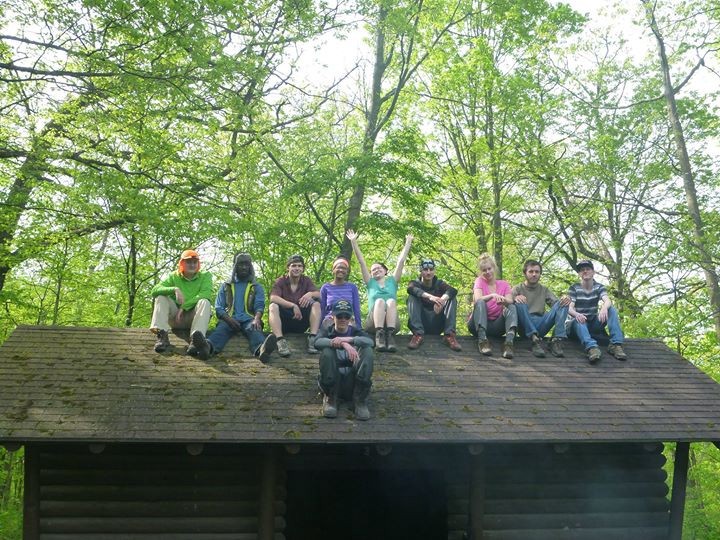
Monona Grove Liberal Arts Charter School curriculum is permeated by 21st Century skills and the competencies and dispositions necessary for their acquisition.
CBE is an all-encompassing approach which “allows students to advance based on their ability to master a skill or competency at their own pace regardless of environment.” Focusing on mastery of content where credit can be awarded, this tailored method allows schools flexibility in tracking personalized learning goals. Highly advantageous in ways of streamlining competencies all students should meet, many PBL, PBE and personalized schools base their independent student work on meeting custom learning targets. Some are weary that CBE is often used synonymously with standard-based education — and wonder if CBE is another prescribed directive domineering what every student must learn before they graduate. Can schools avoid the common pitfall of using CBE to cover the same authorized state mandates? Many have, especially by customizing their competencies with the support of a good learning management system. Others find the management overwhelming when attempting to support the freedom required in student-led competency tracking.
Deeper Learning (DL)
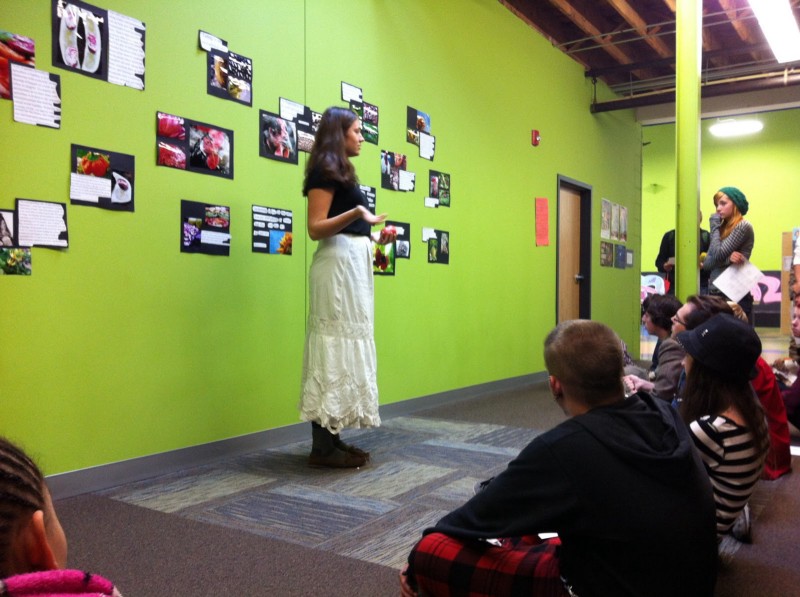
Avalon Charter School fosters deeper learning and deeper leading through a project-based curricular focus.
Perhaps deeper learning is an umbrella term that encompasses much of what other methodologies set out to accomplish, such as instilling analytic reasoning, complex problem solving and teamwork skills in students. But even deeper learning offers some division as educators often question whether “deeper learning” is just a new name for an old idea. Out of the six interrelated competencies of deeper learning recognized by the Hewlett Foundation, perhaps the most progressive is “directing one’s own learning,” as this skill has surely become more manageable given technological advances and access to the world wide web. All deeper learning competencies strive to keep academics rigorous and equitable in order to prepare students for civic life. While some see this as the solution to reform our education system, others believe much academic content and assessment of deeper learning still tends to be prescriptive in some settings.
Are we all fighting the same battle regardless of which method we employ? Our adoption of representative terminology should not limit our view of what makes for quality learning. There are good educators doing good things everywhere, and as these methods gain momentum, so should our conversation on best practice. Chances are, a school, somewhere, has already navigated the waters your school will potentially chart. This gives us hope that at as a community we can share our tales, trials, and tools which make for smooth sailing as our students take alternate paths towards becoming lifelong, independent thinkers and learners. After all, we are in this together.